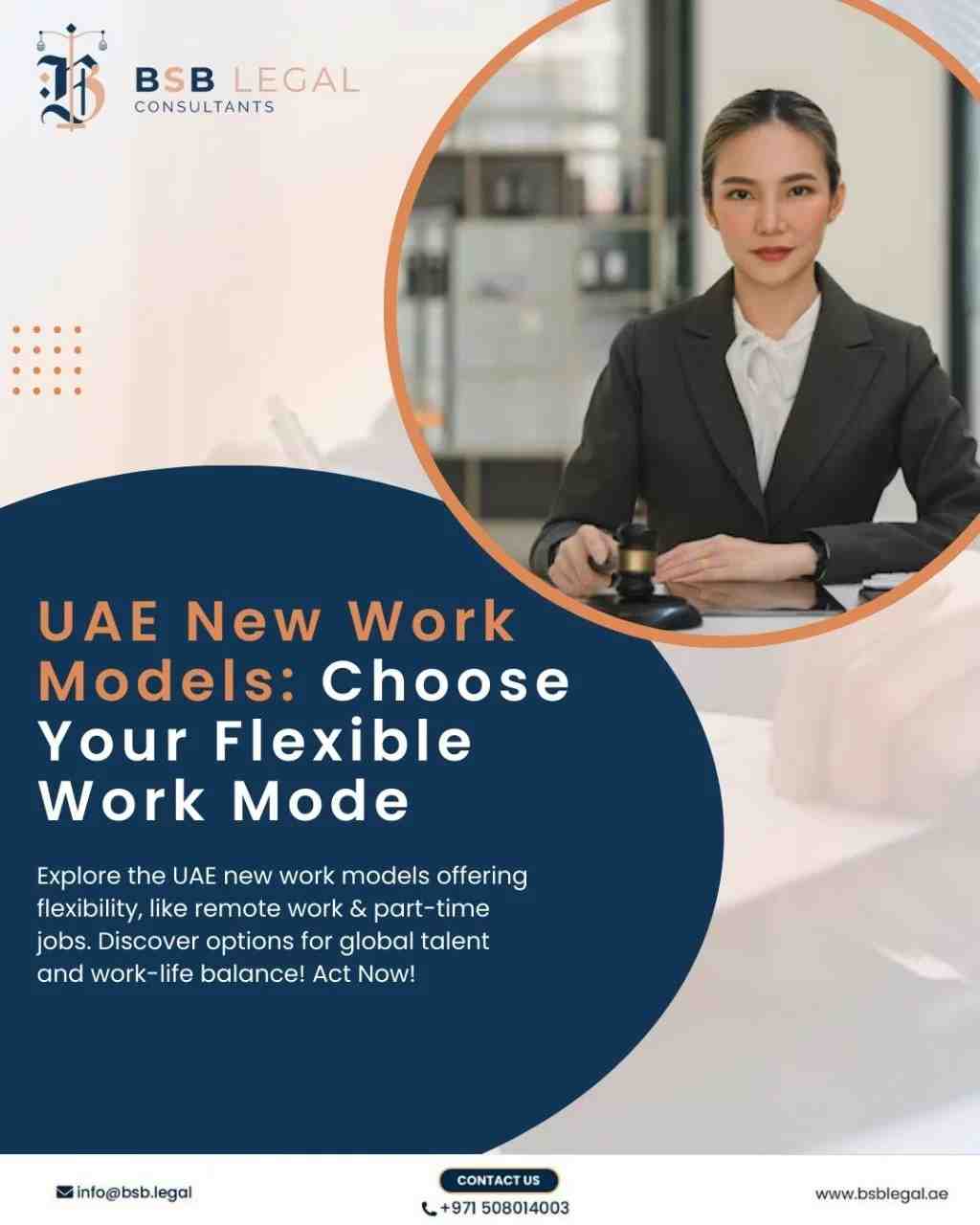


Explore the UAE new work models offering flexibility, like remote work & part-time jobs. Discover options for global talent and work-life balance!
Tired of the traditional 9-to-5 grind? Imagine a work life where you choose when, where, and how you work!
To adapt to the changing dynamics of the global workforce, the UAE has introduced labor laws offering flexibility for private sector employees through the UAE new work models. With six distinct work models, the new regulations aim to cater to a variety of employment needs, attracting talent from across the world. This comprehensive guide will delve into each work model.
The updated labor laws now offer six flexible work models under UAE new work models, giving employees and employers a range of options to suit their unique needs and circumstances. These models aim to enhance work-life balance and create a more dynamic job market.
Full-time employment involves working for one employer for the entire duration of the workday. This model remains the most traditional form of employment and is suitable for those seeking stability and long-term career growth within a single organization.
Remote work allows employees to perform their job duties entirely or partially outside the traditional office setting. This model is ideal for roles that do not require a constant physical presence in the workplace, offering flexibility and reducing commuting time.
The shared job model enables two or more employees to share the responsibilities and salary of a single job role. This arrangement can benefit those looking for part-time work or those who wish to balance their job with other personal commitments.
Part-time work involves working for one or more employers for a specified number of hours or days. This model provides flexibility for individuals who cannot commit to full-time roles but still wish to be part of the workforce.
Temporary work is based on a contract for a specific period or for the duration of a project. Once the project or time period ends, the employment contract concludes. This model is suitable for project-based roles and seasonal work.
Flexible work offers employees the freedom to choose their working hours and days based on job requirements and personal preferences. This model is governed by a contract that specifies the hours, days, and duties, providing maximum flexibility.
The Ministry of Human Resources and Emiratisation (MoHRE) will issue twelve types of permits to facilitate these new work models. Some notable permits include:
Allows juveniles aged 15-18 to work legally, providing opportunities for young individuals to gain work experience while still completing their education.
Residents who wish to work on their own visa, without employer sponsorship, can apply for this permit. It supports entrepreneurial activities and self-employment.
This permit allows employers to hire individuals from abroad for specific jobs or projects, ensuring that specialized skills can be brought in as needed.
The introduction of these new work models brings several benefits for both employees and employers:
Employees can choose work arrangements that best suit their personal and professional needs, leading to improved work-life balance and job satisfaction.
The diverse work models attract talent from around the world, making the UAE a competitive destination for skilled workers.
The shared job model and part-time options provide viable solutions for mothers returning to work and students seeking part-time employment.
By introducing diverse work models under the UAE new work models and strengthening employee protections, the UAE is positioning itself as a leading destination for global talent. Both employees and employers must stay informed about these changes. For further guidance, reach out to top Dubai lawyers or law firms in Dubai.
